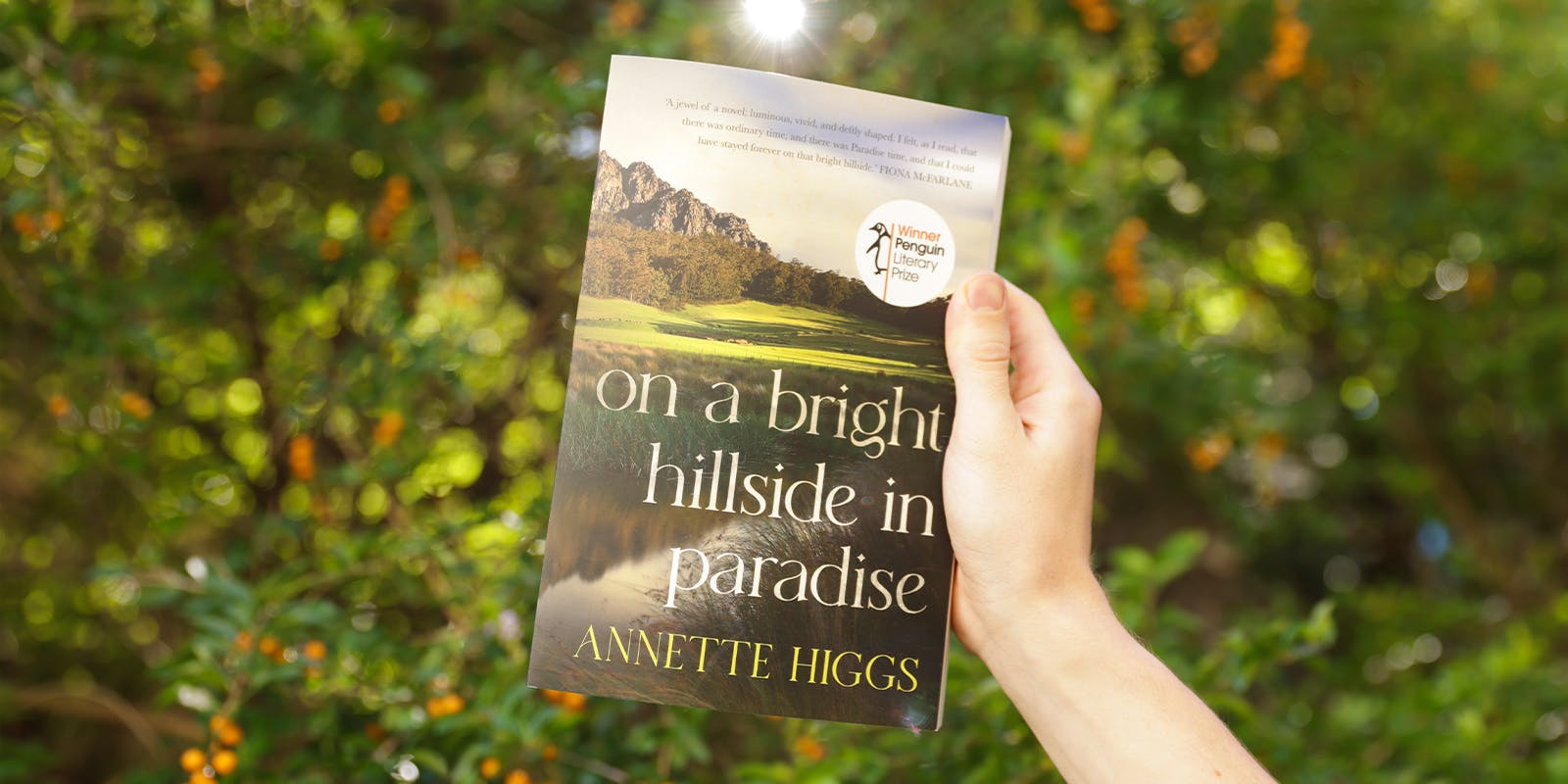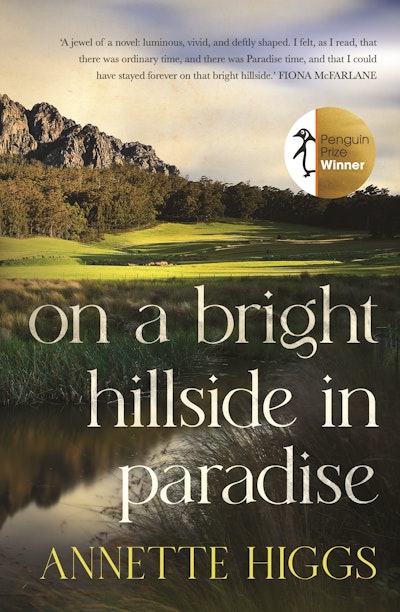A book about faith and family to read with your book club.
On a Bright Hillside in Paradise tells the story of a family of convict descendants in the back-blocks of Tasmania, on a farm in a place called Paradise. When Christian Brethren evangelists arrive, drama ensues, forcing the characters to confront big questions. Avoiding the myth of the ‘frontier pioneer’ the book instead illuminates a narrative where the convicts retreated to the bush to heal from their trauma. As the winner of the 2022 Penguin Literary Prize, you can rest assured that this well-written book will lure you in with its beautifully drawn characters and gripping narrative.
Discussion points and questions
- The novel is told in five parts with a different member of the Hatton family narrating each part. How did this ‘starburst’ structure affect or influence your reading?
- Each of the narrators shares events and moments a little differently. Did this enhance your understanding of life for the families living around the community of Paradise?
- The author credits stories her mother told her as the genesis of the novel. What do you think we can learn if we all listen to the oral history of our family and country more?
- What was it about the visiting Christian Brethren evangelists, that exercised the Hatton family and the rest of the Paradise community so much?
- Historical fiction is a perennially popular genre, and religion and faith were dominant in the lives of people in times past. Yet beliefs are not often explored, or even mentioned in these novels. Why is that?
- Award-winning writer, Fiona McFarlane, described On a Bright Hillside in Paradise as follows: ‘I felt, as I read, that there was ordinary time, and there was Paradise time, and that I could have stayed forever on that bright hillside’. By taking a small subject, one family unit in a tiny remote community in Tasmania, was the author taking a risk of alienating readers? Or is it this tiny slice of life that provides the particular appeal of the novel?
- Are historical novels about the past only, or do they serve a broader purpose for readers?
Interested? Read a snippet.













